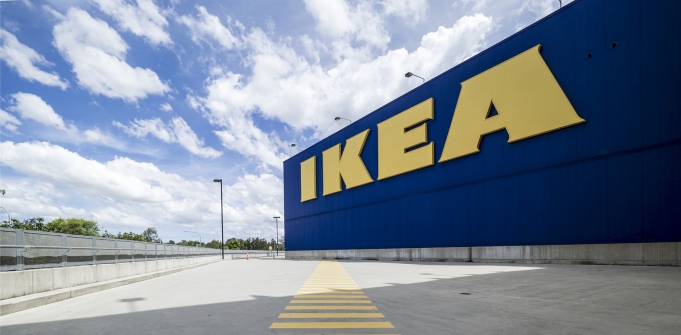
Furniture giant Ikea has taken As-Is — its marketplace for discontinued items, ex-display and pre-loved products — online.
Boasting big savings and sustainable shopping, it allows customers to reserve their products online before visiting their selected store to collect the items from the As-Is area, located just before the checkouts.
It’s one of two recent announcements from Ikea, the first being the Ikea Business Network — a free initiative launched in June, which aims to support Australian small businesses.
Along with membership discounts on Ikea products, the program offers services, benefits and shared knowledge in three key areas: ‘business’, offering Ikea expertise to help improve efficiencies; ‘space’, which helps to affordably create spaces that meet the needs of a business and its clientele; and ‘people’, which supports employee wellbeing and a better life at work with access to benefits, tools and offers.
Membership to the network includes things like interior design consultation, online training in business basics, and access to exercise videos, recipes, wellbeing resources and financial advice in the ‘Perks for your People’ service.
“Small businesses may often not have the resources or tools to provide these kinds of wellbeing services to employees,” said Hannah Kiellerup, Ikea Business Network specialist at Ikea Australia.
“We know that losing an employee in a small business can be devastating.”
Ikea launched As-Is Online in Queensland in April, and has now rolled it out to all 10 of its Australia stores.
With so many Australians shopping online, Lachlan Mitchell, product recovery leader at Ikea Australia, calls it a “natural addition”.
Ikea internal research conducted in partnership with GlobeScan found that 22% Australians buy secondhand goods all or most of the time, while 21% completely avoid buying anything new.
Mitchell says businesses need to listen to what their customers are telling them.
“Bringing sustainability closer to your customers is definitely a good business choice.”
“Customers are becoming increasingly conscious of how their consumption and purchasing behaviours impact the environment.”
More sustainable materials sourcing, initiatives and products to conserve energy and water, and circular economy trading practices are a few of the practices underway at the company.
How can businesses improve their sustainability? Mitchell encourages all to look at how each part of the business — “from supply chains, operations, product ranges, services and employees – can make big or small changes to help transform into a more sustainable business overall”.
Handpicked for you

Amazon Prime Day sparks ‘halo effect’ on small and medium Aussie retailers



COMMENTS
SmartCompany is committed to hosting lively discussions. Help us keep the conversation useful, interesting and welcoming. We aim to publish comments quickly in the interest of promoting robust conversation, but we’re a small team and we deploy filters to protect against legal risk. Occasionally your comment may be held up while it is being reviewed, but we’re working as fast as we can to keep the conversation rolling.
The SmartCompany comment section is members-only content. Please subscribe to leave a comment.
The SmartCompany comment section is members-only content. Please login to leave a comment.